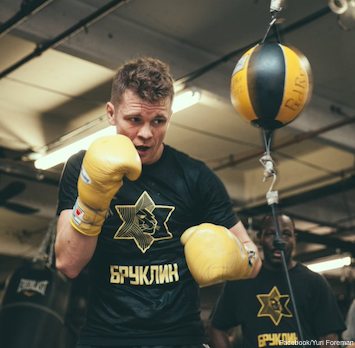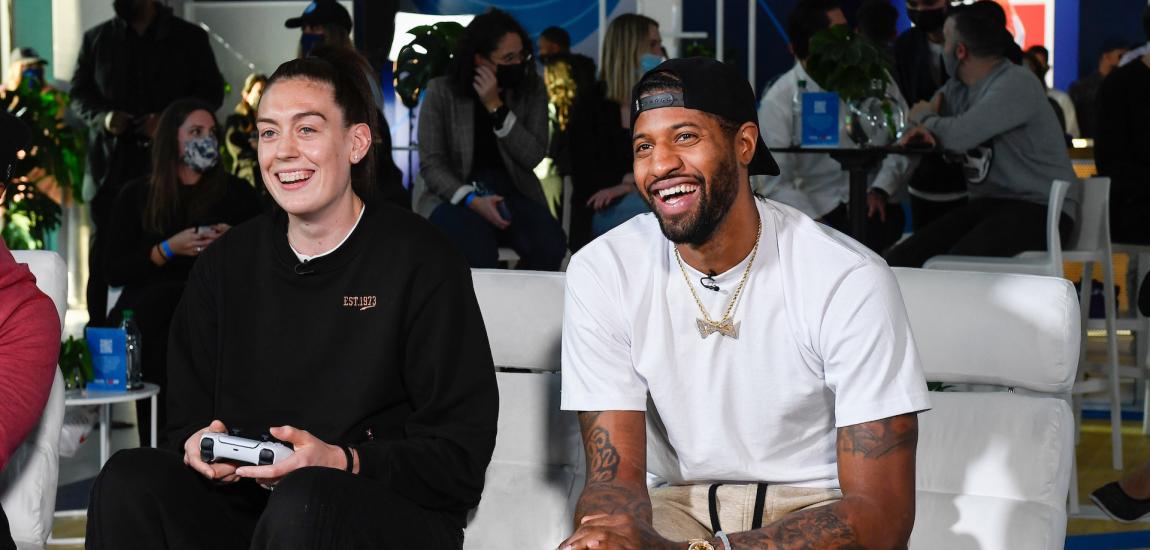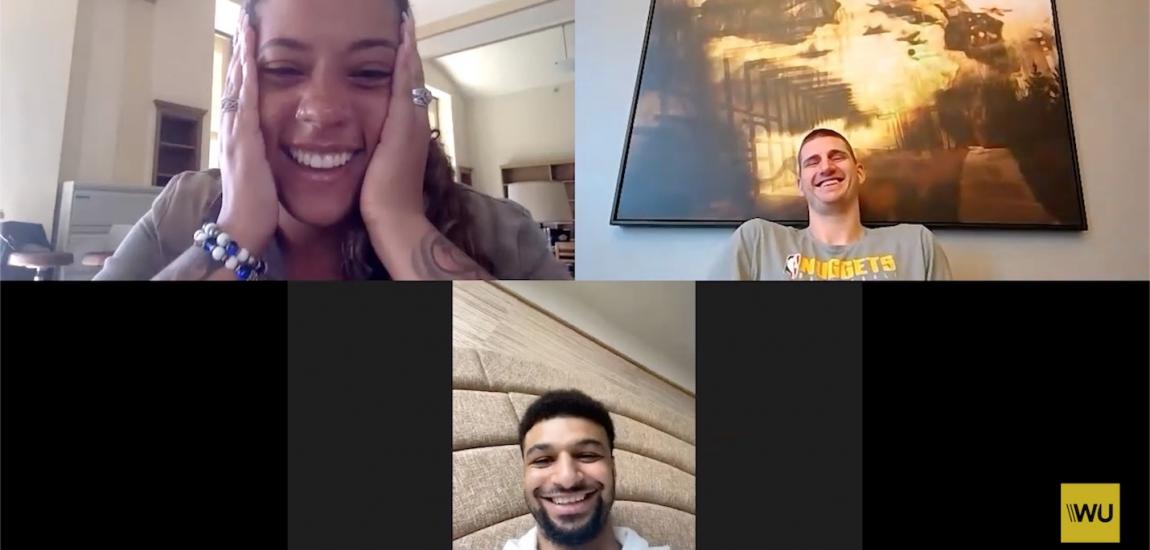Behind the counter of David's K Deli at Barclays Center, one of New York's newest rabbis wears a turtleneck and black hat. He shakes hands with patrons and mingles with co-workers. On this Tuesday, as his rabbinical diploma instructs him, Yuri Foreman brings comfort to others.
Which makes it so ironic that on Saturday, after the sun sets, he will fight another human being.
"Other people think if you're a rabbi and a boxer, you are mashugana," Foreman says, using a Yiddish word that translates to nonsense. "I don't really think that. With Judaism, and I'm sure other religions, you can be a Hollywood actor, you could be a singer, you could be a boxer and you could still be a very spiritually connected person. Today, I have on a rabbi's hat. On Saturday night, I won't have any hat. I'll just be a boxer."
If Foreman's name rings a bell, it probably has to do with the Israeli fighter's two big bouts in 2009 and 2010. On Nov. 14, 2009, Foreman dethroned Daniel Santos in Las Vegas for the WBA world super-welterweight title. The victory made Foreman 28-0 and set up the "Stadium Slugfest" with Miguel Cotto on June 5, 2010. It was the first major fight in the new Yankee Stadium.
Foreman injured his knee against Cotto and lost by technical knockout in the ninth round. His personal profile as an Israeli and Jewish boxer in New York grew, but his boxing career declined soon after. He had surgery on his knee. In his next bout in March 2011, he was stopped in the sixth round by Pawel Wolak of Poland. After taking nearly two years off, he won four low-profile matches in 2013, including one at BB King Blues Club & Grill in New York. Then he retired.
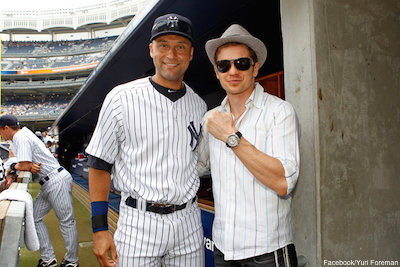
Now, more than two years since his last bout, Foreman, 35, returns to the ring Saturday for an eight-round match against Lenwood Dozier on the undercard of Daniel Jacobs-Peter Quillin main event at Barclays Center.
Foreman will probably never be a world champion again, but since that title fight in the House That Ruth Built, he has accomplished another of his goals. He became an ordained Orthodox rabbi seven months ago, under the tutelage of Rabbi DovBer Pinson.
"When you get a diploma from a serious rabbi, it's like fighting and winning against a three-time world champion," Foreman says. "It's like when I beat Daniel Santos. I haven't just beat a number one. I beat reigning world champions, who he beat."
Forman was born in 1980 in Belarus, then part of the Soviet Union. When he was 10, his parents moved the family to Israel, where they settled in an Arab slum in Haifa. Foreman trained at an Arab gym, and boxing respect kept the peace.
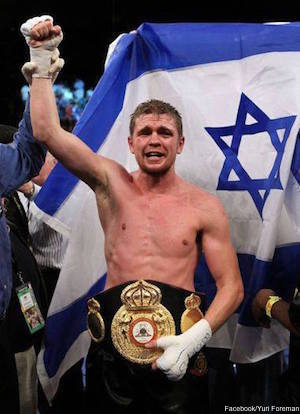
When Foreman became serious about the sport, he moved to New York in 1999. It was in America, not in the Holy Land, that he found his spiritual connection.
"When I came here, I had no Judaism," Foreman says. "In the past, yeah, I'm Jewish and yeah, I lived in Israel, but I never experienced Judaism. The first time I experienced it was in Brooklyn, right near Barclays Center, before Barclays Center actually was even built!"
Foreman's rabbinical education took eight years and started long before he fought in right field of Yankee Stadium.
"It was not an express process," he says with a laugh. "I took my time because I was a professional fighter. I also have two kids. Juggling all that and learning the Kosher Laws -- Kashrut -- it takes time."
At David's K Deli before the Nets-Suns game, fans who ordered "Yuri's Knockout Corned Beef" got their sandwich served by the boxer, along with two tickets to Saturday's matches. Foreman exchanged words with each patron, some mesmerized by his presence and some unaware of his boxing credentials.
The promotion was right up Foreman's alley -- literally.
"There's a lot of Jewish fans," Foreman says. "Jews love sports. There's a kosher deli, which is very accommodating. I live ten minutes away from here.
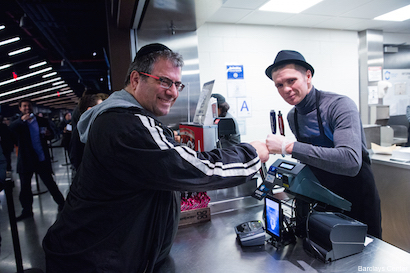
"It's actually the closest fight I've ever had in my entire career. Even fighting in Manhattan, I have to take a car service. Here, it's bus B63 a couple stops."
Jewish and non-Jewish fans approached David's K Deli for Foreman's promotion. Foreman joked with fans, leaned over the cash register for selfies and helped customers with soda spills.
"In Bible, they say, be a light to the other nations," he says. "That's what I see Judaism for me. I value it and spread the teaching and light to everyone."
Says the man who found his calling by punching other people.
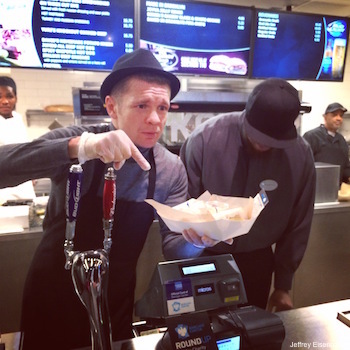
"The thing is rabbi means teacher," Foreman says. "This is a game of quickness of thought process. It's a smart game. Besides, you have to use your body, you have to use your mind. You have to be connected to the source, or the god, or whatever you want to call it. For me, I see boxing as a game. Every game including basketball, there is violence. I could have chose to be a golfer, but it does not give me any burn. A rabbi is someone, just like a teacher, just like a good trainer, it is someone that has to take something out of a person. Trainers have to take potential from a young fighter and open it."
As he prepares to give and take blows Saturday, Foreman says he has no regrets about returning to boxing. He trains at the famed Gleason's Gym in Brooklyn and feels as ready as he can be for the fight. His rabbinical knowledge makes him a more rounded person, but for now, he is just "rolling with the punches" as a Jewish leader. He wants to return to Israel for a period of time, but not necessarily for good. In terms of having his own congregation, it is not in Foreman's cards currently, but he will not rule out a "really interesting opportunity."
Foreman knows his life is unique. It is not often a kid from the USSR can make Aliyah to Israel, settle in Brooklyn and become both a world-renowned boxer and accomplished rabbi.
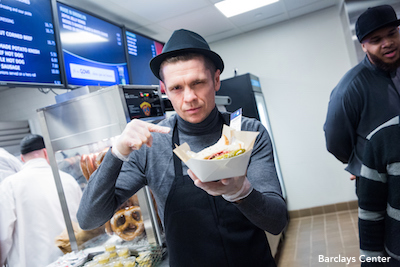
"I'm connected to Israel in Brooklyn in America, and I'm connected to Russian people, or former Soviet Union nations," Foreman says. "I'm more of like the John Lennon song, 'Imagine,' when there are no countries, no borders. We're all just one people under one sun. We happen to be all a little different and we have to respect one another."
When Foreman goes into the ring at Barclays Center, his thoughts will mostly involve boxing tactics. He will maneuver to land more punches than his opponent. He will attempt to recapture some of that magic that made him a world champion.
But those holy thoughts will not disappear. He will attempt to fight while being virtuous. It is a concept many religious individuals and boxing fans may not believe, but Foreman lives.
Rabbi Yuri Foreman, that is.
-- Follow Jeffrey Eisenband on Twitter @JeffEisenband.

